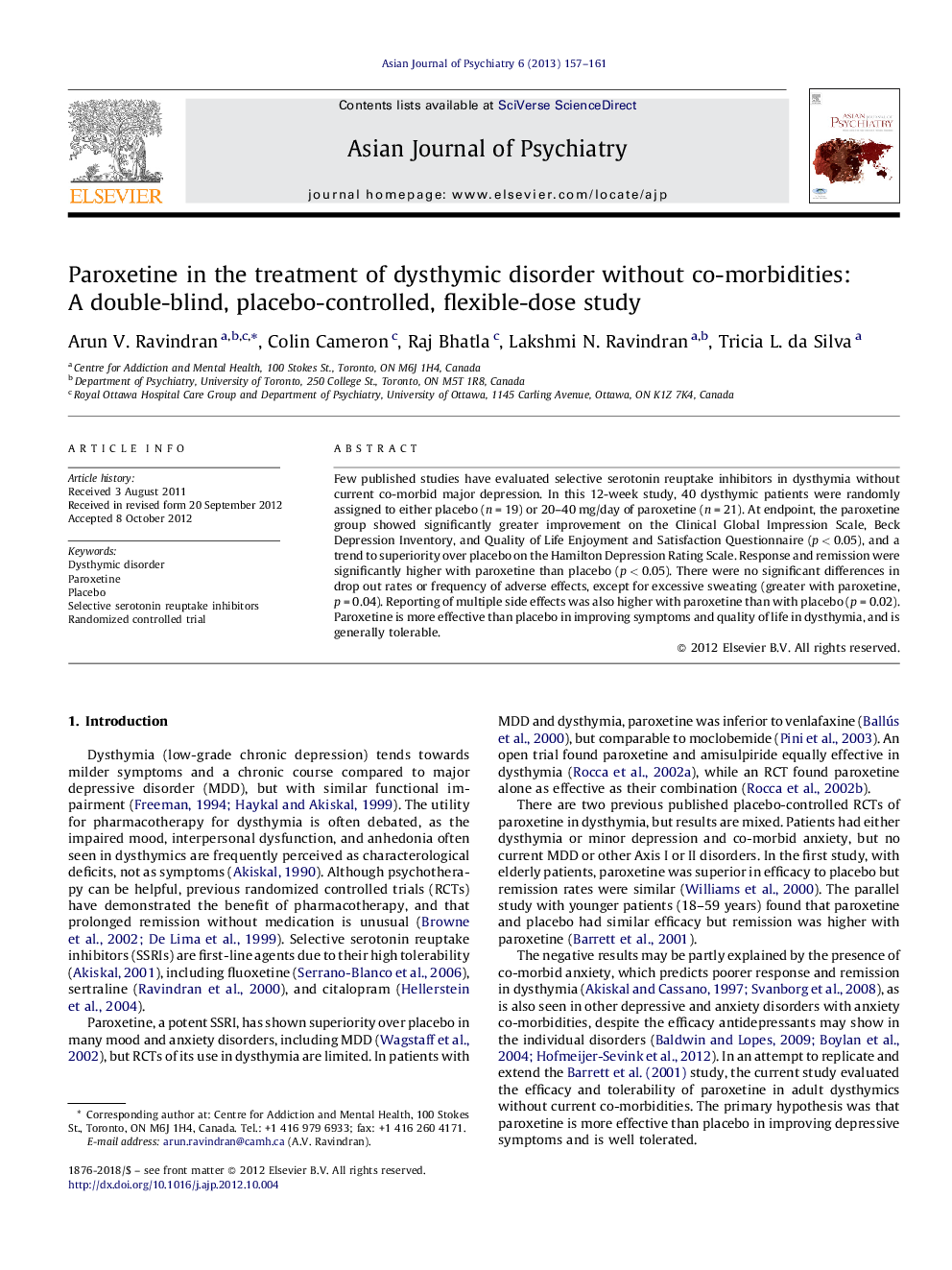| Article ID | Journal | Published Year | Pages | File Type |
|---|---|---|---|---|
| 315517 | Asian Journal of Psychiatry | 2013 | 5 Pages |
Few published studies have evaluated selective serotonin reuptake inhibitors in dysthymia without current co-morbid major depression. In this 12-week study, 40 dysthymic patients were randomly assigned to either placebo (n = 19) or 20–40 mg/day of paroxetine (n = 21). At endpoint, the paroxetine group showed significantly greater improvement on the Clinical Global Impression Scale, Beck Depression Inventory, and Quality of Life Enjoyment and Satisfaction Questionnaire (p < 0.05), and a trend to superiority over placebo on the Hamilton Depression Rating Scale. Response and remission were significantly higher with paroxetine than placebo (p < 0.05). There were no significant differences in drop out rates or frequency of adverse effects, except for excessive sweating (greater with paroxetine, p = 0.04). Reporting of multiple side effects was also higher with paroxetine than with placebo (p = 0.02). Paroxetine is more effective than placebo in improving symptoms and quality of life in dysthymia, and is generally tolerable.
► The efficacy of paroxetine was evaluated in a placebo-controlled, double-blind design. ► Paroxetine was significantly superior to placebo (even in a relatively small patient sample). ► Paroxetine also improved quality of life significantly, which was not observed with placebo. ► This study confirms that a significant proportion of patients with dysthymia will respond to antidepressant therapy.
